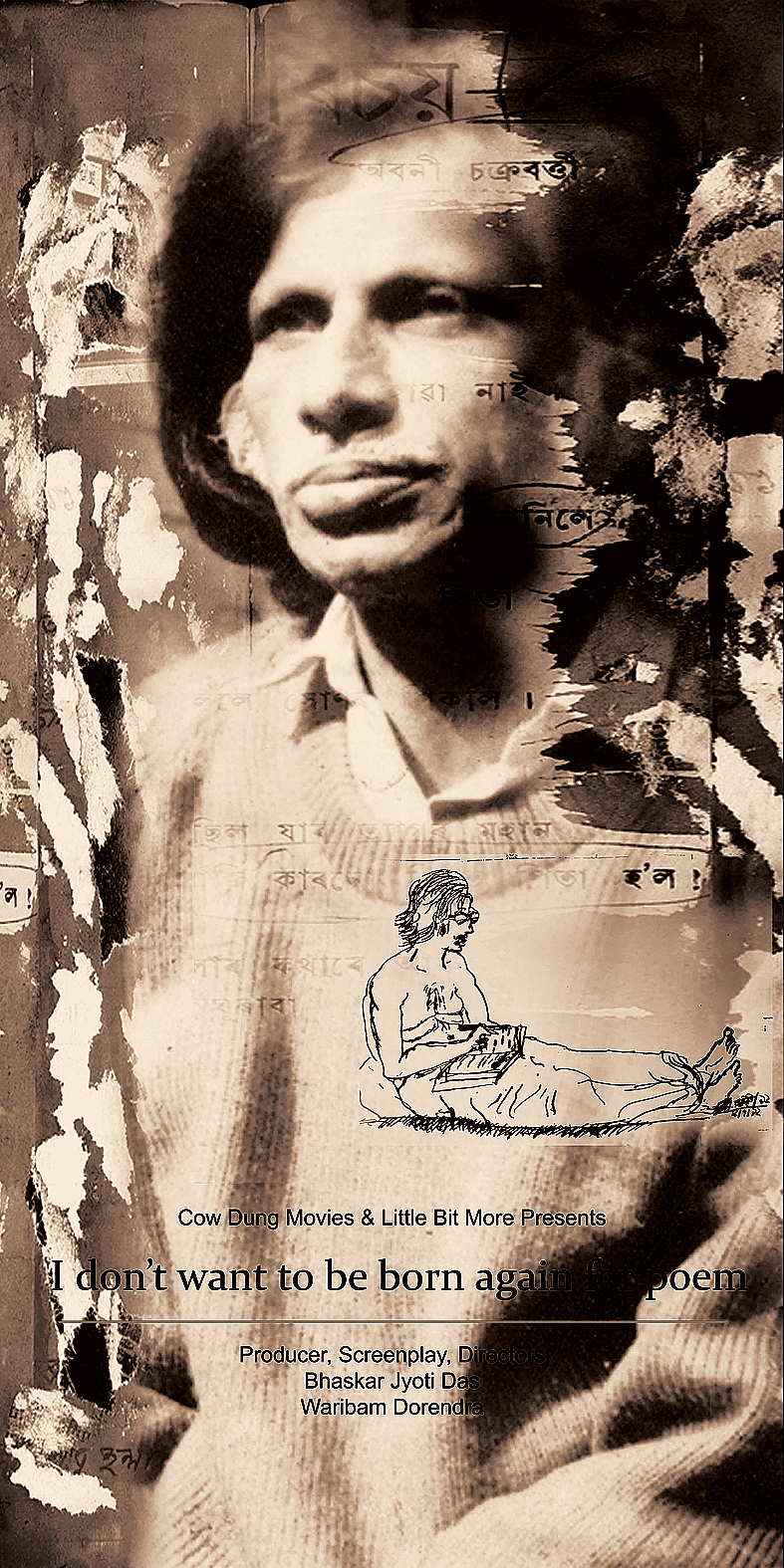The Louvre Museum in Paris, which houses the legendary painting Mona Lisa, will now witness a documentary on Assamese poet Abani Chakraborty, who has been untraced since November 12, 1994.
This is being touted as a special moment for Assamese cinema.
The 22-minute experimental documentary, titled I Don’t Want to be Born Again for Poem is produced, directed and scripted by Guwahati-based filmmakers Bhaskar Jyoti Das and Waribam Dorendra, and it will be screened at Louvre Museum on February 29 as a part of the Les Rencontres Internationales, a major European festival that celebrates artistic and experimental cinema along with other arts.
This year the festival is being organised in both Paris and Berlin from February 25 to March 1. It will have a selection of artistic films, multimedia performances, exhibitions and panel discussions.
It will be attended by filmmakers, museum directors, curators and artists from all over the world.
“We are really honoured that our film, which falls in the genre of experimental cinema, will be screened at the world famous Louvre Museum in Paris. It’s a proud moment that the story of poet Abani Chakraborty will be shown at a venue which has, among its many treasures, the iconic painting Mona Lisa,” Das and Dorendra said in a statement.
Das has written scripts for feature films like Haanduk and Sonar Baran Pakhi, as well as television serials.
Guwahati-based Dorendra, who is an alumni of the Dr Bhupen Hazarika Regional Government Film and Television Institute, has made several documentaries.
“During 1970’s and 80’s there were many revolutionary uprising happening, near and far, all around the world. In this period, amidst this protest and revolutionary uprising, a poet symbolically expresses his feelings to capture the complexity of human existence. Constant financial pressure in his family life is also evident in his words. At one point, words become distorted and absurd. One evening, the poet, Abani Chakravarty, disappears and left many confusions,” says the official website of the festival. It terms the documentary as an experimental film.
Chakraborty, who was born in Nalbari in 1941, had published a number of books, including poetry anthologies, translations and two novelettes. He also edited a number of poetry magazines. Pratibadar Kantha, recorded in 1985, was the first cassette of recitation of Assamese poetry.
His writings include Deha Romeromai Mur (1970), Slogan (1980), Kabikantha (1987), autobiographical novelette Sankardev Uddyan, Si aru Apurba (1990), edited anthologies Britta Bhangar Samay (1972), Ai Samay (1972), Parashu Goswamir Kabita (1989) and Amulya Baruar Jeevan aru Kabita (1990).










